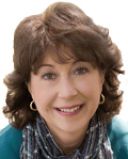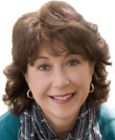
Relationships
Finding the Gift in "Farewell"
When Leaving Is Our Greatest Gift to Those We Love
Posted March 1, 2013
We May Have to Leave
We usually think of loss and grief as being forced upon us by external circumstances. But sometimes—for the good of all concerned—we must initiate the separation ourselves. Or, if the loss is compelled, we must accept that our loved ones will find their way without us. Either way, leaving may eventually be our greatest gift to those we love because of what they learn about themselves in the process.
When I was 26 I left my first husband. It was the hardest thing I had ever done to that point in my life and I cried for weeks—partly over leaving my dog behind and partly out of guilt for abandoning my husband.
But when I returned to our rental to pick up my belongings, I discovered that he had taken command of the household. The dog was brushed, the house was clean, the laundry was done, and my husband’s brother (who had been living with us) was shaved and wearing a new T-shirt.
Why had I been so worried? Yes, my husband tried to get me back and then became verbally abusive when I wouldn’t buy him a car. But he still managed to adapt and make a new life for himself. And I learned a big lesson about cutting people free when you find them relying too heavily on your support rather than taking responsibility for their own growth.
Life turned the tables on me years later when my second husband, Stephen, died of colon cancer. He was the love of my life and losing him was the worst thing that ever happened to me. And I know that leaving me alone was one of his greatest concerns in dying, in part because he had never witnessed me being as strong as I eventually had to become.
Stephen was such an "alpha male" that, once we were married, I took on a much softer demeanor in our relationship. I had to be the omega to his alpha, which often appeared weaker—simply because he was so mentally and physically strong. We had never worked together (where I was much more assertive), so he had never seen me in my normal “project manager” mode until our house was hit by lightning a few months before he died.
Because he was so sick, I had to manage communication and logistics with the disaster recovery company—a task I did so well that the company rep offered me a job. I declined, of course. But that event convinced Stephen it was safe for him to pass on—which he did three months later.
He has been dead for over four years now, and I can unequivocally say that I have grown more as a person in that time than during any other period of my life. Would I have made equal strides if Stephen were still alive? Perhaps, but I doubt it. His absence and my need to find new purpose in my life forced me deep into my inner psychological and spiritual resources as no previous life experience had ever done.
I had to grow up emotionally and take responsibility for my home, finances, and career decisions without Stephen’s support and guidance. At the same time my mother’s health seriously declined, requiring my advocacy as medical power of attorney.
These are the kinds of burdens that survivors of loss face every day, often with the additional responsibility of children still living at home. I know there are people dealing with much more challenging circumstances today than I ever did—and I certainly honor those very difficult journeys that so many are walking with enormous courage.
What I find remarkable about my own journey is how I have continued to gain new insight into the spiritual and life lessons that Stephen had been trying to get me to understand throughout our 18 years together.
I hadn’t been willing or able to internalize some of the deeper concepts that were the guiding principles and practices of his daily life. But his death created in me a receptivity to learning that continues to be powerfully transformative—so much so that I can honestly say that losing Stephen has been the most important event of my life.
Did he have to die for me to make so much progress? I hate to think so, but it may be true. Leaving may have been his greatest act of kindness to me, even though it broke my heart.
This experience leads me to believe that a heart that is broken open is a heart that matures as it learns to cope with the wound that does eventually heal—if we remain open to the lessons of loss. And as that heart matures, it gains the courage to follow its own leadings in a way it probably never did before.
That is certainly my prayer because I recently made the heart-led decision to move to Montana, leaving my very elderly mother in her loving assisted living community in Colorado.
I had never expected to move as long as she was alive. But this past summer it became clear that I could no longer continue in the home Stephen and I had created together. What had once been a symbol of love and security had begun to feel like too much of the past.
The house contained so much of us as a couple that I simply could not move forward as a single person in that environment. Every room felt like an embrace, which was lovely. But the past began to hug too tightly—to the point that I was suffocating.
In addition, my mother had begun to cling to me. The understandable fear and uncertainty that enveloped her after a fall last spring and her subsequent move to assisted living made her increasingly dependent on me. She would invariably experience some kind of health crisis right before I was to leave on a business trip, miraculously perking up once I made the decision to go anyway.
“You know she’s playing you emotionally, don’t you?” commented her primary care nurse one day when I remarked that my mom seemed to do better when I was away. And it was true. All I heard were her complaints while she was frequently complaint-free with the nurses.
It’s a tricky equation with the very elderly and their many painful, chronic ailments. As adult children and emotional caregivers, we are the logical ones to hear about their difficulties. One of the great fears of the elderly is that they will be sent to a nursing home. So, the thinking goes, if they don’t tell the nurses that something is wrong, they won’t be sent away from their living situation that, while not ideal, is at least better than being assigned to a tiny room in a total-care facility.
Still, the bottom line was clear: My mother was probably going to live for quite a while longer in her current situation, and I could no longer live in mine. So I sold my house in Colorado, bought a smaller one in Montana, and completed the move by the end of January.
When I returned for a visit in February, I could tell that my mom was emotionally stronger and more self-reliant than when I had left. Of course, she misses me and wishes I could just pop over to see her several times a week. But I think she is actually proud of her increased ability to cope. She has developed more trusting relationships with her nurses and is becoming more interested in how I am moving forward.
I am grateful for this change because it is clear to me that my leaving was critical for my own wellbeing. And I feel certain that my mom is working harder on her own psychological and spiritual progress because I’m not there to lean on. She has wonderful support from the assisted living staff and the palliative care professionals who visit her regularly—and they reinforce her independence in a way I cannot.
I do believe that we are hard-wired for compassion. That caring for those we love is instinctive and essential to our own sense of purpose. But if we unwittingly do too much or our loved ones become too dependent on us, it may be that our greatest act of compassion is to let them work out their own future without our well-intentioned interference.
Self-reliance Is Emotionally Satisfying
Leaving a loved one is heart-wrenching. But sometimes it is best if we go on in the faith that they will find their way—and that they will become stronger and more self-confident in the long run because of the inner strength they discover in our absence.
The psychological rewards for self-reliance are enormous and we can only bestow them on ourselves.



